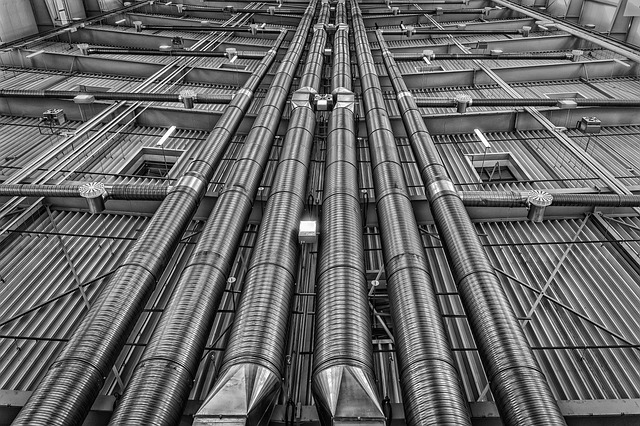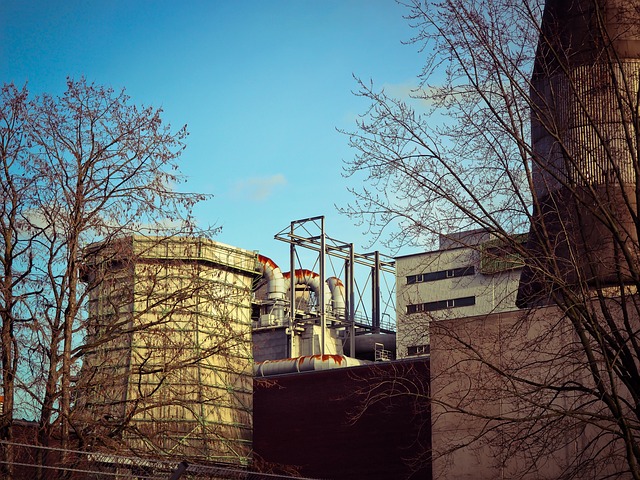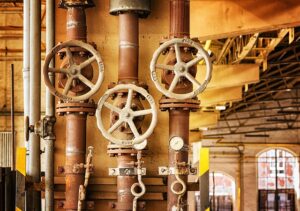Commercial electric boilers are emerging as a leading, eco-friendly solution for modern heating systems, providing efficient and clean energy alternatives that eliminate on-site emissions. These advanced devices, including modular boiler systems and high-capacity electric boilers, offer precise temperature control and rapid response times in HVAC applications across various sectors. By replacing traditional fossil fuel systems, commercial electric boilers significantly reduce greenhouse gas emissions and improve air quality, contributing to a greener future and substantial cost savings. The growing market for these boilers reflects a global push towards sustainable energy solutions, driven by technological advancements that make them suitable for diverse business needs while enhancing performance and reducing operational costs.
Clean-burning commercial electric boilers are transforming heating systems by producing zero on-site emissions. As the demand for sustainable solutions grows, these advanced technologies offer a compelling alternative to traditional boiler systems. This article delves into the workings of commercial electric boilers, highlights their environmental benefits, and explores emerging trends shaping the market. By understanding the advantages of clean-burning technology, businesses can contribute to improved air quality and health safety in commercial spaces.
- Understanding Commercial Electric Boilers: Their Role in Modern Heating Systems
- The Environmental Impact of Traditional Boiler Systems and the Need for Alternatives
- Clean-Burning Technology: How Electric Boilers Eliminate On-Site Emissions
- Benefits of Zero Emissions: Improved Air Quality and Health Safety in Commercial Spaces
- Future Prospects: Trends and Innovations Shaping the Market for Commercial Electric Boilers
Understanding Commercial Electric Boilers: Their Role in Modern Heating Systems

Commercial electric boilers play a pivotal role in modern heating systems, offering efficient and clean energy solutions for institutions and industrial settings. These advanced devices have transformed the way we heat our spaces, moving away from traditional fossil fuel-based systems towards more sustainable alternatives. With zero on-site emissions, commercial electric boilers are at the forefront of eco-friendly technology, addressing environmental concerns while providing reliable heating and hot water.
Electric heating systems, especially modular boiler systems and high-capacity electric boilers, have gained popularity due to their energy efficiency. Electric steam boilers and electric hot water boilers are versatile components in commercial HVAC (heating, ventilation, and air conditioning) systems, catering to diverse needs across various sectors. Their ability to provide precise temperature control and quick response times makes them ideal for institutional heating, ensuring comfort and cost savings.
The Environmental Impact of Traditional Boiler Systems and the Need for Alternatives

Traditional boiler systems have long been a significant contributor to environmental pollution and climate change. These systems, often relying on burning fossil fuels like natural gas or oil, release harmful greenhouse gases, such as carbon dioxide (CO2), into the atmosphere. The combustion process also produces other pollutants, including nitrogen oxides (NOx) and particulate matter, which have detrimental effects on air quality and human health. In densely populated urban areas, these emissions can exacerbate smog and contribute to a range of respiratory issues.
As the world grapples with the urgency of climate change, there is an increasing need for sustainable alternatives in commercial heating solutions. Commercial electric boilers offer a promising path forward by eliminating on-site emissions through clean-burning technology. They represent a significant advancement in industrial electric heating, providing high-capacity, energy-efficient options, such as electric steam boilers and hot water boilers, ideal for institutional heating needs. By adopting these advanced commercial boiler technologies, businesses can reduce their carbon footprint, contribute to cleaner air, and play a vital role in the transition towards more sustainable commercial HVAC systems.
Clean-Burning Technology: How Electric Boilers Eliminate On-Site Emissions

Clean-burning technology in commercial electric boilers plays a pivotal role in eliminating on-site emissions, marking a significant shift towards sustainable heating solutions. Unlike traditional boilers that rely on fossil fuels and produce harmful exhaust, electric boilers harness electricity to generate heat, resulting in zero direct emissions at the point of use. This eco-friendly approach not only reduces the carbon footprint of institutions but also contributes to improved air quality in urban areas.
The advanced electric heating systems utilize high-capacity, energy-efficient boilers capable of providing both steam and hot water for institutional heating needs. Modular boiler systems offer flexibility and customization, catering to diverse applications within commercial HVAC (heating, ventilation, and air conditioning) networks. This versatile nature ensures that businesses can adopt cleaner energy sources without compromising on performance or capacity, making a substantial step towards a greener future.
Benefits of Zero Emissions: Improved Air Quality and Health Safety in Commercial Spaces

The adoption of clean-burning commercial electric boilers comes with a plethora of environmental and health benefits. One of the most significant advantages is the elimination of on-site emissions, which includes harmful pollutants like nitrogen oxides (NOx) and carbon monoxide (CO). These emissions are often associated with traditional gas or oil-fired boilers, contributing to air pollution and posing potential risks to the health of individuals in commercial spaces.
In urban areas, where commercial buildings abound, the impact of poor air quality is particularly concerning. By transitioning to electric heating systems like modular boiler systems, high capacity electric boilers, or even energy-efficient electric steam boilers, businesses can significantly improve indoor air quality. This shift towards sustainable commercial boiler technology not only reduces greenhouse gas emissions but also fosters a healthier environment for occupants, enhances institutional heating efficiency, and contributes to the overall well-being of communities.
Future Prospects: Trends and Innovations Shaping the Market for Commercial Electric Boilers

The market for commercial electric boilers is experiencing a surge in innovation and interest, driven by the growing need for sustainable energy solutions. As the world shifts towards cleaner energy sources, there’s a noticeable trend among businesses to adopt electric heating systems as an environmentally friendly alternative. This shift is particularly prominent in industries that traditionally relied on fossil fuels for their heating needs, such as institutional heating and commercial HVAC systems.
Future prospects look bright for commercial electric boilers, with advancements in technology allowing for high-capacity electric boilers capable of meeting the demands of larger facilities. The development of modular boiler systems offers flexibility and scalability, catering to a wide range of applications from small businesses to large industrial operations. Additionally, the focus on energy efficiency continues to gain traction, leading to the production of more advanced electric steam boilers and electric hot water boilers that deliver superior performance while minimizing operational costs.
Commercial electric boilers, with their clean-burning capabilities and zero on-site emissions, represent a significant step forward in modern heating systems. By adopting this technology, businesses can contribute to improved air quality and health safety while mitigating environmental impact. As the market continues to evolve, driven by innovative trends and increasing demand for sustainable solutions, commercial electric boilers are poised to become the game-changer in heating efficiency and environmental stewardship.






